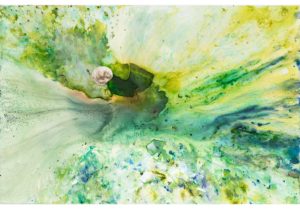
Penny Siopis: Restless Republic
About:
Siopis’ interest in materiality and contingency, form and formlessness in painting is longstanding. Over the last decade she has intensified this interest through experiments with glue and ink, creating a fluid process in which the medium is an active agent in the making of the work. Siopis writes:
Experimenting with unorthodox materials in painting generates new ideas. More than that, it offers an opportunity to open one’s self to the ‘life’ of non-human matter and to find in this openness an intimate model for relationality in the bigger political picture of the self, of the social body, of ecology; a model that is full of risk and uncertainty.
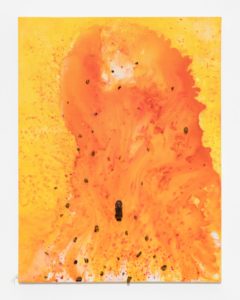
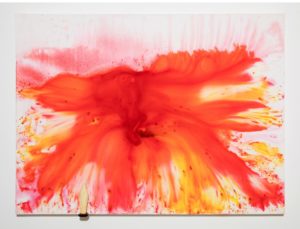
She starts with the relationship between the horizontal and the vertical, first creating the conditions for something to happen by placing the stretched canvas on the floor and pouring glue and ink onto its surface. Siopis continues:
The glue is vibrant; it reacts chemically with the ink, responds to the pull of gravity, and is animated by exposure to the air. Opaque at first, the glue becomes transparent as it dries. At this moment animation is suspended, and form is fixed into a potential image. Looking down onto the surface invites viewing that is intimate, immersive and tactile. Then I lean the canvas against the wall and move it around, this side up, then that side up, then again … Vertical viewing has a distancing effect that opens perception for outside eyes. Everyone sees according to her own template, yet nothing is settled within the bounds of the picture, or in relation to other pictures or objects in its orbit.
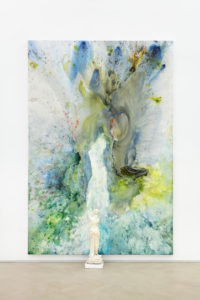
The exhibition brings found objects from the artist’s collection into play with the paintings, the combination producing associative networks between them and across the gallery, simultaneously referencing art, society and politics. The title Restless Republic alludes to both a nation state and a state of being, of flux and volatility, emergence and explosiveness. Here Siopis dissolves distinctions between process and image, between the act of making and re-making, and the critical distance adopted in the act of viewing. Process speaks again of the ‘life’ of the medium; chance is central, control is a myth, and authorship belongs to viewer, medium and maker.
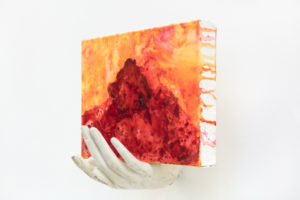
Siopis writes:
Giving over to the fluid process with all its vicissitudes and visceralities brings forth sensations and images that press against my consciousness. Everything happens in the moment; the spills of the moving matter ensnare the events of the day. Older gestalts join the fray in my mind’s eye – Plato’s Republic, clashing orders in the French Revolution, Hobbes’ Leviathan … Physical objects fall in and out of the painted world. Some press their faces against the painted surface touching their own reflection. What force pulls here, pushes there? The republic is a particular public in a world of flux.
How to embody flux in the exhibition, where presentation is usually set in configurations that stay put for the run of the show?
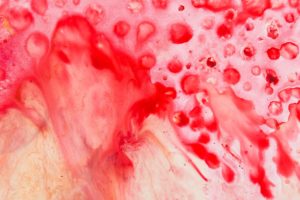
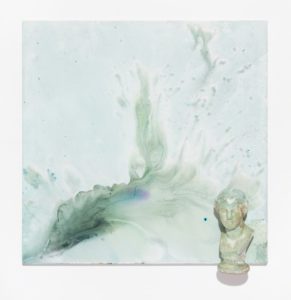
Siopis writes:
It is true that particular presentations can visualise flux within an exhibition’s limits. This I hope happens with Restless Republic where distinctions between figure and ground dissolve, where aberrant glue-spills agitate the edges of things, where visual orders of paintings and objects clash, where colours fight … But these contingent energies operate as suspended animation, as a kind of displacement for the action that can’t happen in situ. In its stillness the visual unsettlement becomes vulnerable to spectator capture, to the imprint of the model of exhibition that imposes stasis, even synthesis, even when such a stable state is actively resisted. What to do with convention? Change it.
The wall installation will change over the duration of Restless Republic, Siopis taking to heart the saying of Heraclitus, the ancient Greek philosopher of flux: you never step into the same river twice as it is never the same water and you are never the same person. (text and courtesy: Stevenson Gallery SA)
